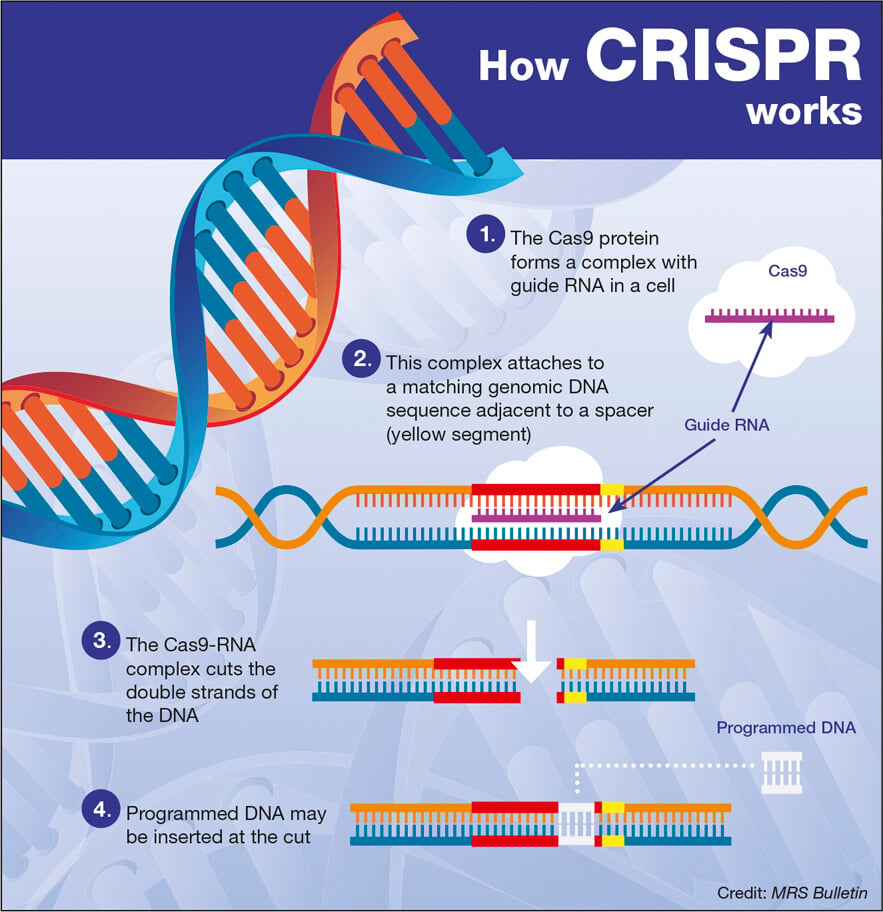CRISPR gene editing represents a groundbreaking advancement in biotechnology, offering unprecedented possibilities for altering genetic sequences and potentially curing hereditary diseases. As scientists explore the nuances of CRISPR technology, treatments for ailments like sickle cell disease are emerging, igniting discussions about the ethics of gene editing. The ability to manipulate genes raises important questions of health equity and the implications for marginalized populations who may not have equal access to such biomedical innovations. Furthermore, the complex landscape of gene editing ethics compels us to consider who decides the parameters and limitations of this powerful tool. With each discovery, we are challenged to reflect on our responsibilities toward humanity as we navigate the promise and peril of transforming the very essence of what it means to be human.
Gene modification techniques, such as CRISPR, are revolutionizing our approach to tackling genetic disorders and enhancing health outcomes. By enabling precise alterations in DNA, these methods offer potential solutions for diseases like sickle cell anemia, but they also provoke critical debates around moral considerations and social justice. The rapidly expanding field invites scrutiny over the ethical dimensions of biomedical advancements, particularly concerning equity in healthcare accessibility. As we delve into these conversations, it’s essential to reflect on the broader implications of genetic intervention and the societal choices that shape our future. The dialogue surrounding these innovations emphasizes the need for a comprehensive understanding of both their potential benefits and ethical ramifications.
Understanding CRISPR Gene Editing Technology
CRISPR gene editing technology has revolutionized the landscape of genetic research and medicine, allowing for precise modifications to DNA. This cutting-edge technique, which stands for Clustered Regularly Interspaced Short Palindromic Repeats, enables scientists to alter genetic sequences with remarkable accuracy. By utilizing a guide RNA to direct the Cas9 protein to a specific location in the genome, researchers can ‘clip’ out faulty genes or insert new ones, paving the way for innovative treatments. The implications of CRISPR technology span a wide array of fields, from agriculture to biomedical innovations.
Moreover, CRISPR offers potential cures for genetic disorders that were once deemed untouchable. For instance, in the case of sickle cell disease, CRISPR has already shown promise in clinical trials to effectively edit the genes responsible for this debilitating condition. As we delve deeper into the capabilities of this technology, it becomes increasingly vital to understand both its benefits and the ethical questions it raises. The dual-edged sword of CRISPR gene editing invites discussions on how far we should go in altering the fabric of human life.
Frequently Asked Questions
What are the ethical implications of CRISPR gene editing in medical treatments?
The ethical implications of CRISPR gene editing in medical treatments include considerations of who determines which genetic traits are modified, potential health inequities due to costs, and the moral responsibilities of parents in selecting traits for their children. Discussions around gene editing ethics emphasize the need for oversight and thoughtful regulation, particularly regarding germline editing.
How does CRISPR technology work in treating sickle cell disease?
CRISPR technology works in treating sickle cell disease by editing the genes responsible for the condition. Scientists manipulate somatic cells to remove the gene that causes sickle cell, effectively curing the disease in affected individuals. This revolutionary approach holds promise for comprehensive remediation of genetic disorders, but raises questions about long-term effects and health equity in access to treatments.
What concerns exist regarding health equity in CRISPR-related biomedical innovations?
Health equity concerns in CRISPR-related biomedical innovations focus on the high costs associated with gene editing therapies, like the treatment for sickle cell disease costing around $2.2 million. This raises issues about who can afford such therapies and whether all racial and socio-economic groups will equally benefit from advancements in CRISPR technology.
Can CRISPR gene editing create unintended consequences?
Yes, CRISPR gene editing can create unintended consequences. While editing specific genes may solve one problem, genes interact in complex ways, as demonstrated by changes in LDL cholesterol levels that may inadvertently affect other biological processes. It’s crucial to proceed cautiously with gene editing to avoid unforeseen repercussions.
What role does CRISPR gene editing play in the discussion of biomedical innovations?
CRISPR gene editing plays a pivotal role in discussions of biomedical innovations, as it represents a significant technological advancement with the potential to cure genetic diseases. However, it also brings ethical dilemmas and highlights disparities in health access, necessitating a holistic approach to ensure that innovation is paired with ethical considerations and health equity.
| Key Points | Details |
|---|---|
| Introduction of CRISPR | Neal Baer discusses ethical issues of CRISPR gene editing. |
| Desire for cures | CRISPR offers potential cures, such as for sickle cell anemia. |
| Ethical dilemmas | Should we edit genes associated with conditions like Down syndrome? |
| Costs of treatment | Curing sickle cell can cost around $2.2 million, raising access issues. |
| Fairness in healthcare | Global implications on access to CRISPR technology. |
| Impact of gene editing | Concerns about editing genes for non-life-threatening conditions. |
| Oversight and regulation | Legal limitations exist, but monitoring varies globally. |
| Unintended consequences | Gene editing could have complex, unforeseen effects on health. |
Summary
CRISPR gene editing represents a revolutionary advancement in biomedical science, offering the potential to cure hereditary diseases like sickle cell anemia. However, as highlighted in discussions by experts like Neal Baer, the ethical implications of modifying human genes raise critical questions about fairness, accessibility, and the nature of human differences. The debate over whether we should alter genes tied to conditions like Down syndrome emphasizes the need for careful consideration of health justice, oversight, and the potential for unintended consequences from gene editing advancements. As the field evolves, the dialogue surrounding CRISPR will continue to shape its application in medicine and society.
